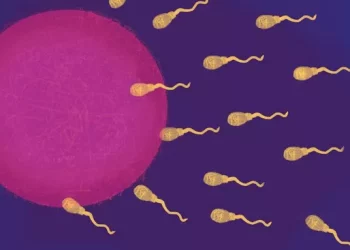Male fertility is a cornerstone of the conception process, yet it’s often overlooked or misunderstood. While fertility issues can be complex, there are actionable steps men can take to enhance their reproductive health and increase their chances of conception. By focusing on healthy lifestyle habits, avoiding harmful substances, managing stress, understanding sexual health and timing, considering environmental factors, addressing medical considerations, scheduling regular check-ups, and fostering open communication and support, men can take proactive measures to boost their fertility. In this comprehensive guide, we delve into proven strategies for improving male fertility, empowering men to take control of their reproductive health and embark on the journey to parenthood with confidence.
Healthy Lifestyle Habits
When it comes to fertility, men play a crucial role in the conception process. While fertility issues can be complex, adopting a healthy lifestyle can significantly enhance male reproductive health. Here’s a comprehensive guide on ways to boost fertility in males.
Diet:
A balanced diet lays the foundation for optimal reproductive health. Incorporate plenty of fruits, vegetables, whole grains, lean proteins, and healthy fats into your meals. These foods provide essential nutrients like zinc, selenium, vitamin C, and vitamin E, which are known to support male fertility. Zinc, for example, is vital for sperm production, while antioxidants like vitamin C and E protect sperm from damage.
Exercise:
Regular physical activity not only improves overall health but also enhances fertility. Engaging in moderate exercise can help regulate hormone levels, improve blood flow to the reproductive organs, and maintain a healthy weight. However, excessive exercise can have adverse effects on fertility, so aim for a balanced approach.
Weight Management:
Maintaining a healthy weight is crucial for fertility. Obesity is associated with reduced sperm quality and hormonal imbalances. Focus on achieving a healthy weight through a combination of balanced diet and regular exercise. Consult with a healthcare provider to develop a personalized weight management plan if needed.
Avoidance of Harmful Substances
Tobacco:
Smoking is detrimental to sperm quality and fertility. Chemicals in tobacco smoke can damage sperm DNA, decrease sperm count, and impair sperm motility. If you smoke, quitting is the best course of action to protect your reproductive health. Additionally, avoid exposure to secondhand smoke, as it can also impact fertility.
Alcohol:
Excessive alcohol consumption can disrupt hormone levels, impair sperm production, and decrease sperm quality. While moderate alcohol consumption may not have significant effects on fertility, it’s advisable to limit intake or abstain altogether when trying to conceive.
Drugs:
Recreational drugs like marijuana, cocaine, and opioids can negatively impact male fertility. These substances can disrupt hormone production, impair sperm function, and decrease libido. Avoiding recreational drug use is essential for optimizing fertility.
Managing Stress
Chronic stress can affect hormone levels and sperm production, making it harder to conceive. Incorporate stress-reduction techniques into your daily routine, such as mindfulness, meditation, exercise, and engaging in hobbies. Prioritizing self-care and relaxation can help alleviate stress and improve reproductive health.
Sexual Health and Timing
Frequency:
When trying to conceive, finding the right balance in the frequency of intercourse is crucial. Too frequent or infrequent intercourse may affect sperm quality. Aim for regular, timed intercourse throughout the menstrual cycle to maximize the chances of conception.
Timing:
Understanding the woman’s fertile window is essential for successful conception. Ovulation typically occurs around the middle of the menstrual cycle. Timing intercourse during this fertile window increases the likelihood of sperm meeting the egg, leading to conception.
Environmental Factors
Heat:
Exposure to excessive heat can negatively impact sperm production. Avoid activities that raise testicular temperature, such as prolonged sitting, using saunas, or soaking in hot tubs. Opt for loose-fitting underwear and clothing to promote airflow and maintain optimal testicular temperature.
Chemical Exposure:
Environmental toxins and chemicals can interfere with male fertility. Minimize exposure to pesticides, pollutants, and industrial chemicals whenever possible. Choose organic produce, reduce the use of plastic containers, and be mindful of potential hazards in your environment.
Medical Considerations
Underlying Health Conditions:
Certain medical conditions can affect male fertility. Conditions like diabetes, hypertension, and hormonal imbalances can disrupt reproductive function. Seek medical advice and treatment for any underlying health issues to optimize fertility.
Supplements:
Some supplements may offer benefits for male fertility. Coenzyme Q10, L-carnitine, and folic acid are among the nutrients that support reproductive health. However, it’s essential to consult with a healthcare professional before taking any supplements to ensure safety and effectiveness.
Regular Check-ups
Regular check-ups with a healthcare provider are essential for assessing overall health, including fertility status. Routine screenings and tests can help detect any fertility-related issues early on, allowing for timely intervention and treatment. Don’t hesitate to schedule appointments with your healthcare provider to address any concerns or questions about your reproductive health.
Support and Communication
Open communication between partners about fertility concerns and goals is crucial for navigating the journey to conception. Seek support from healthcare professionals, support groups, or counselors if needed. Remember that you’re not alone, and there are resources available to help you and your partner along the way.
Conclusion
In conclusion, optimizing male fertility requires a multifaceted approach that encompasses healthy lifestyle habits, avoidance of harmful substances, stress management, understanding of sexual health and timing, awareness of environmental factors, attention to medical considerations, regular check-ups, and support from partners and healthcare professionals. By prioritizing these strategies, men can improve their reproductive health and increase their chances of successfully conceiving a child.
Related Topics:
An Overview of The Global Trend of Infertility Rate


























